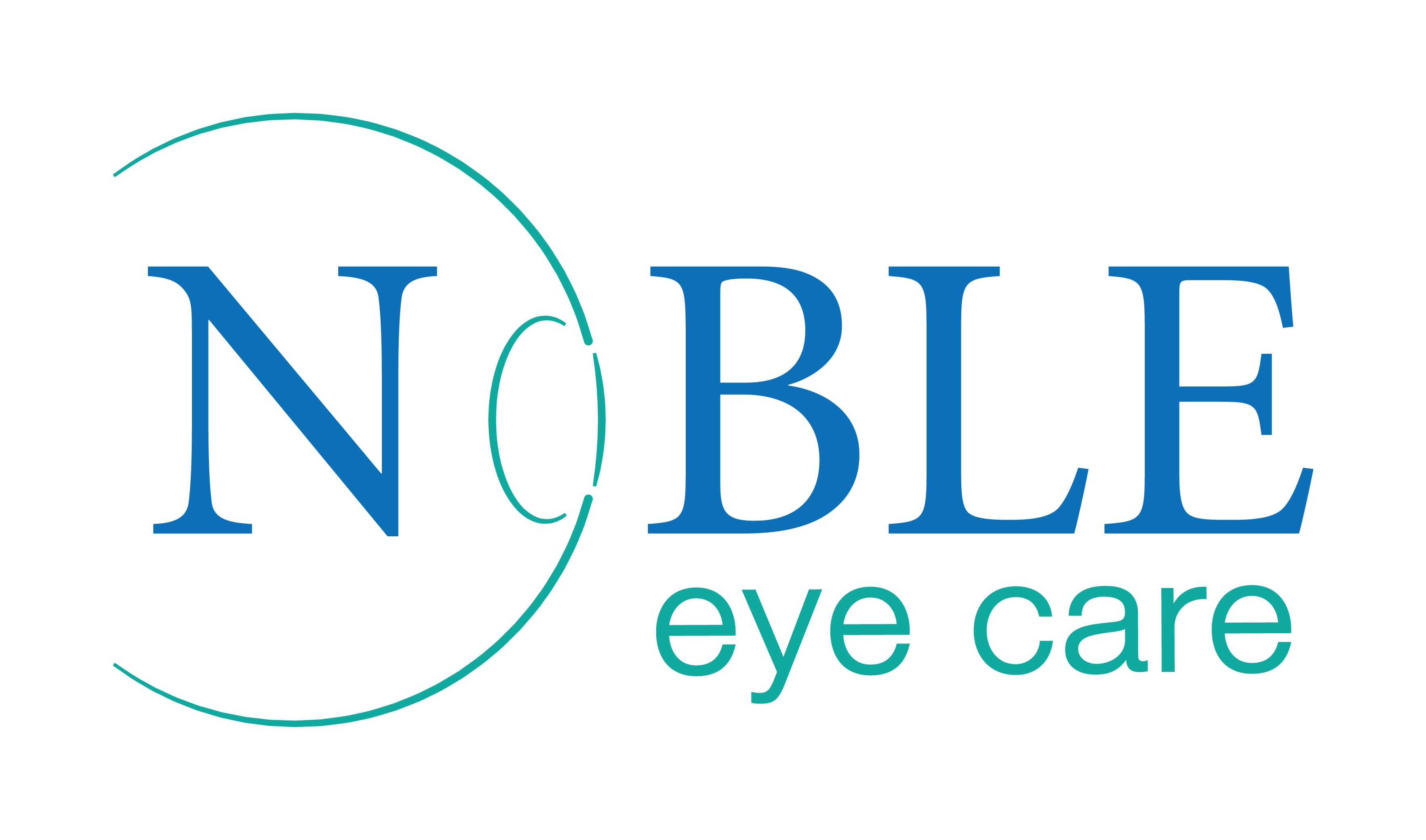Visiting an ophthalmologist or an optometrist is always the best place to start if you have any suspicions that you may have optic neuritis. Optic neuritis doctors are specially trained and experienced in treating this condition. Seeing an optic neuritis specialist can make a big difference, too, as they often have more advanced knowledge and techniques that can increase the likelihood of restoring vision. They also have a deeper insight into what other issues may contribute to your condition, so they’re better positioned to devise a personalized detection and treatment plan for you. Doing your research ahead of time is key to finding an optometrist or optic neuritis doctor with experience and will go a long way in ensuring the best possible outcome for the condition.
Dr. Digvijay Singh is a renowned optic neuritis specialist. He has dedicated his career to providing superb care for those who suffer from this condition, specializing in both the diagnosis and treatment of optic neuritis. With over 20 years of experience, he continues to be sought out due to his passion for helping patients. His ability to provide advanced treatments and customized plans helps individuals achieve positive outcomes no matter how difficult their case may be. He takes a patient-centered approach to every consultation, ensuring that each individual receives an individualized treatment based on their needs and goals. Thus, it is easy to see why he has become known as one of the top optic neuritis doctors in the world.
Dr. Digvijay Singh has spent years building his career as an optic neuritis doctor. Known for his expertise in the area, he is widely considered to be one of the best optic neuritis specialists in India when it comes to diagnosing and treating optic neuritis. Patients far and wide seek his invaluable advice as they endeavor to provide a safe and comfortable experience while using the latest technology that he specializes in. Dr. Digvijay Singh undoubtedly provides excellent service with his vast experience, skills, dedication, and care that rivals any other specialist out there.
Optic Nerve Diseases Treatment
Optic nerve diseases can have a devastating effect on an individual's quality of life. These disorders affect the optic nerve, which carries information from the eye to the brain and is essential for vision. Symptoms of optic nerve diseases can range from complete blindness to vision loss, blurred vision, poor color vision, or difficulty reading or recognizing faces. Diagnosis and treatment must be tailored to the individual depending on the type and severity of their condition but often includes counseling and special rehabilitation programs as well as medications or surgery. It is vital that individuals with any symptoms related to optic nerve disorders be evaluated by an ophthalmologist or specialist in order to receive immediate treatments that can help preserve residual sight and try to minimize further damage.
Dr. Digvijay Singh is a highly respected doctor with a specialty in the diagnosis and treatment of optic nerve diseases. He has worked on some of the most challenging cases, providing quality care to patients afflicted with severe vision loss due to these conditions. His knowledge base and skill set in this area of medicine is impressive, drawing praise from medical professionals around the world. His dedication and hard work provide hope for countless individuals who would otherwise be left without options. By dedicating his life to helping others, he has provided a powerful example of how one person can make an enormous impact on society. You must contact Dr Digvijay Singh and his team now for bespoke treatment for optic nerve diseases.
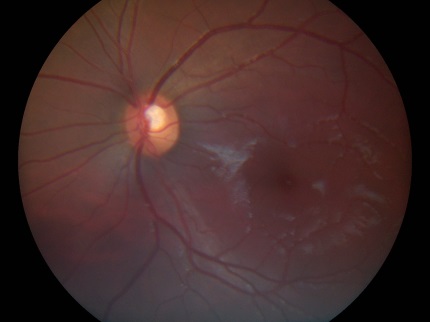
The pink disc seen in the image above is the optic nerve
Types of Optic Nerve Diseases
Optic Neuritis: This refers to inflammation of the optic nerve secondary to either a loss of nerve sheath covering (demyelination) as seen in multiple sclerosis or infections in the body or due to unknown causes.
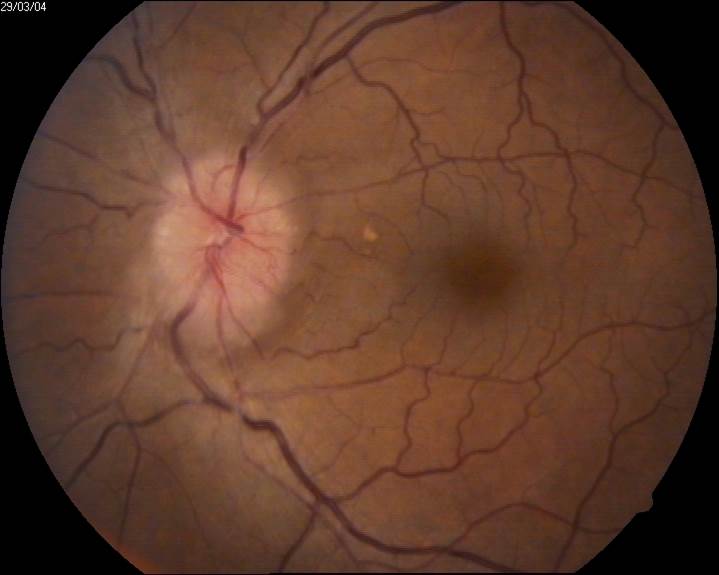
Fundus photograph showing blurred optic nerve margins with pink color suggestive of papillitis(optic neuritis)
Ischemic Optic Neuropathy: This is like a mini stroke of the optic nerve whereby the optic nerve does not receive blood for a short period of time due to blockage of some small blood vessel.
Papilledema: This is optic disc swelling of both the eyes secondary to raised intracranial or brain pressure.
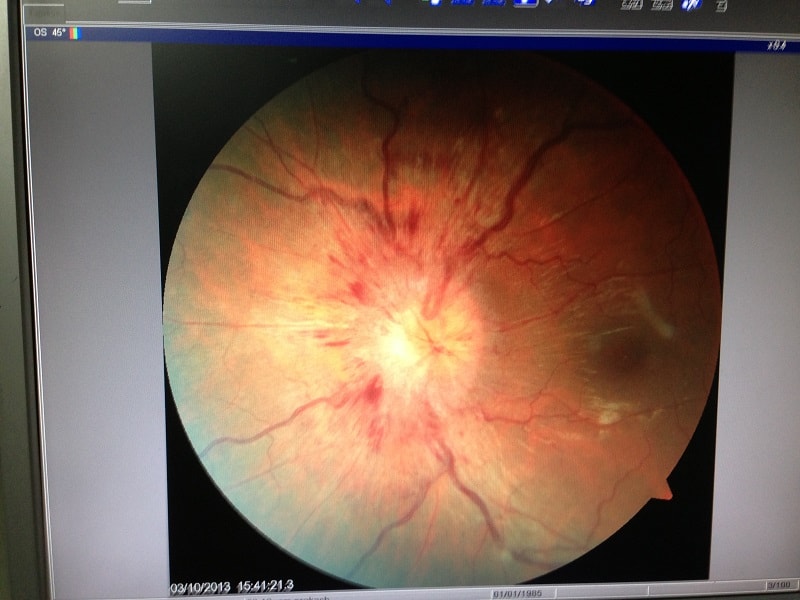
Severe disc edema suggestive of papilledema
Optic Neuropathy: This is a group of optic nerve disorders which result in an abnormal function of the optic nerve and may result in optic atrophy. They may be hereditary or secondary to medications or toxins or after some trauma. They generally do not cause inflammation or swelling of the optic nerve.
Optic Atrophy: This refers to an end stage condition of the optic nerve where the nerve gets permanently damaged and thinned out due to many conditions such as the optic nerve diseases described above or conditions related to neurology and neurosurgery.
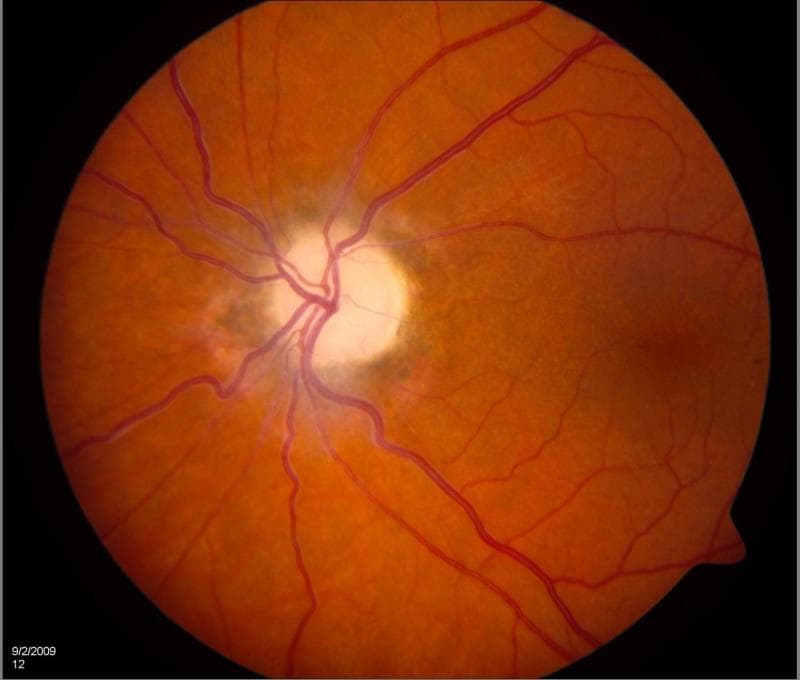
Pale yellow appearing optic nerve suggestive of optic atrophy
Symptoms of optic nerve diseases
Optic nerve diseases present with:
· Blurring of vision
· Decreased vision
· Transient vision loss
· Loss of visual field
· Pain behind the eyeball on movement of eyes
· Reduced colour perception
· Reduced brightness perception
Causes
· Genetic: Optic nerve diseases are often hereditary which means that they are passed on through the family and result from a defect in some gene.
· Neurological diseases: Diseases such as Multiple Sclerosis, Alzheimer’s disease, Parkinson’s disease, stroke etc.
· Brian infections and brain tumors
· Trauma: Injury to the head can often result in optic neuropathy and atrophy.
Risk Factors
· Family history
· Diabetes
· High blood pressure
· Low blood pressure
· High lipids
· Obesity
· Multiple sclerosis
· Neurological disease
· Neurosurgery
· Head Trauma
· Eye diseases such as uveitis, glaucoma
· Sleep Apnea
Tests and Diagnosis
Optic nerve diseases require careful eye examination and special tests to reach a proper diagnosis
These include:
1. Visual acuity testing: The vision is tested using a vision chart
2. Dilated eye examination for viewing the optic nerve and retina.
3. Colour vision testing: This is done using special charts or books or computer software to determine if there is reduced color perception.
4. Contrast sensitivity testing is done using special charts or computer softwares to determine the ability to see objects in low contrast.
5. Stereoacuity: This is a special test used to evaluate the optic nerve and higher brain functions with the use of special glasses and booklets. The test determines the ability of both eyes to see together to give 3-Dimensional sight.
6. Visual field tests/perimetry: This test is done using a specialised machine to determine the area among our eyes that you are being able to see. In many optic nerve diseases the field of vision seen by the eye reduces or becomes abnormal.
7. Visual evoked response/electrophysiology: This tests the ability of the optic nerve to conduct signals to the brain. The test involves putting electrodes near the forehead and the back of the skull which detect electric signals when a bright flash of light or patterned stimulus is presented to the eye.
8. Optic nerve imaging: This is done with the help of equipment such as the optical coherence tomography to get a very detailed vew of the optic nerve.
9. Brain imaging: A CT scan or MRI of the brain and eyes help establish a clear diagnosis in many cases of optic nerve diseases.
Treatment
· Lifestyle modifications: Management of diabetes, hypertension, high lipds and obesity are important through lifestyle modifications and medicines.
· Medical therapy: Intravenous steroids are the treatment of choice for optic nerve diseases such as optic neuritis or traumatic optic neuropathy. Other medicines used include aspirin for ischemic neuropathy and nerve tonics or multivitamin preparations.
· Surgical therapy: Surgical therapy includes optic nerve decompression for traumatic optic neuropathy or optic nerve sheath fenestration for idiopathic intracranial hypertension.
Prevention
Optic nerve diseases can be prevented by regular eye check-up and control of risk factors such as diabetes high blood pressure or low blood pressure, high cholesterol levels, obesity and sleep apnea.
When to contact the eye doctor
Contact the doctor if you have
· Any of the symptoms suggestive of optic nerve disease
· Neurological disease
· Brain infections
· Brain tumors
· Diabetes, high blood pressure or low blood pressure, high lipids and obesity
![DigvijayProfile[1]](https://drdigvijaysingh.com/wp-content/uploads/2017/11/DigvijayProfile1.jpg)
